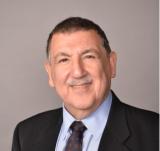Live Professional Workshop: Strategic Psychotherapeutics: Using the Building Blocks of Clinical Science to Guide Treatment

There are over four hundred approaches to psychotherapy, most of which branch from the primary streams of knowledge including clinical experience, empirical evidence, theoretical systems, and evidence from related disciplines. What is missing is an organized framework to guide and optimize treatment. The basic building blocks of psychotherapeutics that are fundamental to most approaches are well-documented. Strategic Psychotherapeutics uses these building blocks to inform evidence-based practices, combining the best empirical evidence and clinical expertise, with patient preferences and values. In this presentation, participants will be introduced to the system, which delineates the domains of knowledge that constitute the basic building blocks of psychotherapy. The therapeutic scope and impact of clinicians are enhanced when psychotherapists are grounded in these fundamental knowledge domains and understand how they can be blended. As clinicians gain an understanding of how these basics relate to approaches and technical interventions, more complex therapeutic activities such as assessment, treatment planning, clinical decision making, and alliance maintenance can be appreciated. In this symposium, participants will learn the 11 basic building blocks of psychotherapeutics that can be used to select the approaches and technical interventions best suited to each patient. The goal of this webinar is to enhance clinical expertise by providing the basic, intermediate, and advanced knowledge domains universal to all psychotherapeutics.
Category
- Basic Science
- Psychotherapy
- Workshop
Format
- Live Webinar
Credits
- 3.00 ACEP NBCC clock hours
- 3.00 Category I credits for Social Workers
- 3.00 Psychologists
- 3.00 Participation
Event date April 5, 2024
Live OCD & Anxiety Lecture Series: Sessions I & II - April 19, 2024

Obsessive-Compulsive Disorder (OCD) is a common and often debilitating mental health condition characterized by unwanted intrusive thoughts (obsessions) and repeated distress-reducing behaviors (compulsions). Frequently misunderstood, misdiagnosed, and mistreated, this series of lectures will demystify OCD and related disorders and the most effective protocols for helping those who suffer from them. Attendees new to or heavily experienced in treating OCD and related disorders will gain knowledge from multiple perspectives. This unique format features six lectures from top experts in the field, scheduled across three sessions over the Spring 2024 season. This series includes experts presenting on the concept of growth mindset in OCD treatment, the use of acceptance and commitment therapy (ACT) in OCD treatment, an update on the state of pharmacology in OCD, and sessions on the treatment of perfectionism, hoarding, and health anxiety.
Category
- Anxiety/OCD
- Psychotherapy
- Workshop
Format
- Live Webinar
Credits
- 3.00 ACEP NBCC clock hours
- 3.00 AMA PRA Category 1 Credit™
- 3.00 Category I credits for Social Workers
- 3.00 Psychologists
- 3.00 MNA Contact Hours for Nurses
- 3.00 Participation
Event date April 19, 2024
Live Professional Workshop: Shifting From Trauma-Informed To Healing-Centered Care For Black Male Teens

Trauma-informed care tends to focus on the symptoms of a person impacted by trauma. As a treatment-based model, trauma-informed care views these symptoms in isolation which potentially can make one feel like they are what happened to them. Thus, the term “trauma survivor.” As service providers we need to shift from a treatment-based model to a salutogenic approach that supports collective well-being. Healing-centered engagement expands how we think about trauma as an isolated experience and offers a holistic approach to restore well-being. A Healing-Centered approach is holistic involving culture, civic action, and collective healing. A Healing-Centered approach highlights the ways in which trauma and healing are experienced collectively. Healing-Centered Engagement expands how we think about trauma and offers a strengths-based approach to restore well-being. Participants will distinguish trauma-informed care from healing-centered engagement strategies, explore key brain regions as they play a vital role in addressing the wellbeing of Black boys and men, and practice how to apply a healing-centered engagement approach by analyzing a case study.
Category
- Child & Adolescent
- Minority Health
- Trauma
- Workshop
Format
- Live Webinar
Credits
- 1.50 ACEP NBCC clock hours
- 1.50 Category I credits for Social Workers
- 1.50 Psychologists
- 1.50 Participation
Event date April 19, 2024
Live Grand Rounds: Managing Behavioral and Psychological Symptoms of Dementia (BPSD) In The Era Of Boxed Warnings

Behavioral and Psychological Symptoms of Dementia (BPSD) refers to a group of non-cognitive symptoms and behaviors that occur commonly in patients with dementia. They result from a complex interplay between various biological, psychological and social factors involved in the disease process. BPSD is associated with increased caregiver burden, institutionalization, a more rapid decline in cognition and function and overall poorer quality of life. It also adds to the direct and indirect costs of caring for patients with dementia. Available data indicate efficacy for some non-pharmacological and pharmacological treatment modalities for BPSD. However, recently the use of psychotropic medications for the treatment of BPSD has generated controversy due to increased recognition of their serious adverse effects.
Category
- Geriatrics/Older Adults
- Grand Rounds
- Mood Disorders
- Psychopharmacology
Format
- Live Webinar
Credits
- 1.00 ACEP NBCC clock hours
- 1.00 AMA PRA Category 1 Credit™
- 1.00 Category I credits for Social Workers
- 1.00 Psychologists
- 1.00 MNA Contact Hours for Nurses
- 1.00 Participation
Event date April 25, 2024
Live Workshop: Questions That Can Save a Life!: Preventing Suicide in Primary Healthcare

Many primary care health professionals feel uncomfortable screening for depression and suicide. The reasons are varied. Some do not feel adequately trained to address mental health issues, others feel these issues are overly complex as well as time and labor intensive within the context of a busy primary care practice. Our four presenters, representing the fields of psychiatry, psychology, and social work, will offer easily implemented screening tools and practices that will help flag patients at high risk for depression and suicide and recommend how to efficiently manage and refer them to the appropriate level of care. As completed suicides climb in the United States, particularly among youth, the elderly, and minority populations, the primary care provider may be the best professional able to identify those at high risk of suicide, especially in light of the finding that most people who complete suicide visited their primary care professional within three to six months of their death. Asking about depression and suicide in primary care can save lives!
Category
- Suicide/Crisis
- Workshop
Format
- Live Webinar
Credits
- 2.00 ACEP NBCC clock hours
- 2.00 AMA PRA Category 1 Credit™
- 2.00 Category I credits for Social Workers
- 2.00 Psychologists
- 2.00 MNA Contact Hours for Nurses
- 2.00 Participation
Event date April 26, 2024
Live Grand Rounds: Creative Resilience & Aging: Frank Sinatra’s Aging in Rhythm

Frank Sinatra (1915-1998) was among the most admired and influential performing artists of the 20th century, with an approach to rhythm and phrasing that left a deep and lasting impression on all popular singers to follow. At the same time, his public persona and private life were among the most controversial of public figures. This presentation will use images, audio, and video clips to illustrate Mr. Sinatra’s professional journey across six decades, including examination of his lifelong alcohol use and periods of despondency and suicidality. We will pay special attention to how he dealt with his own aging process, including how he continued to tour in concert well into the progressive dementia that would eventually end his career. His story holds rich implications for considering the creative resilience potential in aging, and for the limitations to such resilience posed by illness and functional impairment.
Category
- Geriatrics/Older Adults
- Grand Rounds
- Well-Being
Format
- Live Webinar
Credits
- 1.50 ACEP NBCC clock hours
- 1.50 AMA PRA Category 1 Credit™
- 1.50 Category I credits for Social Workers
- 1.50 Psychologists
- 1.50 MNA Contact Hours for Nurses
- 1.50 Participation
Event date April 30, 2024
Live Professional Workshop: Library/Social Work Collaborations: A Mutually Beneficial Way to Address Community Needs

Library and social work collaborations are growing across the US and globally, and with good reason, as psychosocial needs have increased while the social safety net has simultaneously decreased in many communities. This presentation will cover recent research on the growing psychosocial needs of library patrons, how patrons are using their library to address psychosocial needs, and how these needs have shifted libraries' roles and increased staff stress and trauma. Information will be presented about how social work partnerships are used to complement public library services and address the psychosocial needs of library patrons while also increasing support for library staff. Examples will be shared of successful library and social work collaborations to address patrons' needs, support staff, and improve community capacity to address psychosocial needs. The presentation will end with suggestions for social workers and libraries wanting to begin a new collaboration to meet staff, patron, and community needs in their local areas.
Category
- Community Mental Health
- Social Work
- Workshop
Format
- Live Webinar
Credits
- 1.50 ACEP NBCC clock hours
- 1.50 Category I credits for Social Workers
- 1.50 Psychologists
- 1.50 Participation
Event date May 3, 2024
Live OCD & Anxiety Lecture Series: Sessions III & IV - May 10, 2024

Obsessive-Compulsive Disorder (OCD) is a common and often debilitating mental health condition characterized by unwanted intrusive thoughts (obsessions) and repeated distress-reducing behaviors (compulsions). Frequently misunderstood, misdiagnosed, and mistreated, this series of lectures will demystify OCD and related disorders and the most effective protocols for helping those who suffer from them. Attendees new to or heavily experienced in treating OCD and related disorders will gain knowledge from multiple perspectives. This unique format features six lectures from top experts in the field, scheduled across three sessions over the Spring 2024 season. This series includes experts presenting on the concept of growth mindset in OCD treatment, the use of acceptance and commitment therapy (ACT) in OCD treatment, an update on the state of pharmacology in OCD, and sessions on the treatment of perfectionism, hoarding, and health anxiety.
Category
- Anxiety/OCD
- Psychotherapy
- Workshop
Format
- Live Webinar
Credits
- 3.00 ACEP NBCC clock hours
- 3.00 AMA PRA Category 1 Credit™
- 3.00 Category I credits for Social Workers
- 3.00 Psychologists
- 3.00 MNA Contact Hours for Nurses
- 3.00 Participation
Event date May 10, 2024
Live Professional Workshop: Trauma Informed Care for Older Adults

In the United States, many people experience potentially traumatic events across the life course, and some people experience long-term negative impacts from those events that affect the ways they engage with others and the care system. Given the high rates of trauma in the population, it is reasonable to believe that the older adults for which we provide care will also have high rates of trauma about which providers may or may not be aware. Trauma informed care is a system wide approach to care that aims to reduce re-traumatization and make health and social services more accessible to people who have past traumatic experiences. This presentation will cover risk factors for trauma in older adults, possible presentations of the effects of trauma, ways that individual providers and systems can become more trauma informed, and the differences between trauma informed care and trauma treatment.
Category
- Geriatrics/Older Adults
- Trauma
- Workshop
Format
- Live Webinar
Credits
- 1.50 ACEP NBCC clock hours
- 1.50 Category I credits for Social Workers
- 1.50 Psychologists
- 1.50 Participation
Event date May 17, 2024
Live Grand Rounds: Ethical Issues in Treating LGBTQ Patients

The American Psychiatric Association’s Principles of Medical Ethics emphasize competence, respect and up-to-date knowledge as a basis for appropriate professional behavior toward lesbian, gay, bisexual, transgender and queer (LGBTQ) patients. After providing some definitions of helpful terms, this presentation then reviews historical psychiatric attitudes towards LGBTQ patients that could be construed, at best, as patronizing and, at worst, overtly hostile. In modern clinical practice, as opposed to trying to “cure” homosexuality or “transsexualism,” LGBTQ patients are helped to live their lives according to their own natures and desires. This presentation outlines some common clinical questions raised by LGBTQ patients—what is known and not known about the origins of homosexuality and transgender expression, sexual orientation conversion efforts (SOCE), therapist self-disclosure, how therapists should address LGBTQ patients, and controversies surrounding treatment of transgender children—as well as ethical issues raised in these clinical encounters.
Category
- Ethics/Legal
- Grand Rounds
- LGBTQIA+
Format
- Live Webinar
Credits
- 1.00 ACEP NBCC clock hours
- 1.00 AMA PRA Category 1 Credit™
- 1.00 Category I credits for Social Workers
- 1.00 Psychologists
- 1.00 MNA Contact Hours for Nurses
- 1.00 Participation
Event date May 22, 2024

 Facebook
Facebook Twitter
Twitter LinkedIn
LinkedIn Forward
Forward